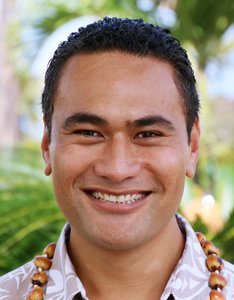 Tall, dark, handsome, killer smile, mellifluous voice, perfect diction, great stage presence, and more: Chances are if you’ve been to the Polynesian Cultural Center’s Alii Luau in the past three years, you’ve already met our Senior Master of Ceremonies, Tupua Ainuu. Some of you may know him by his nickname, “Cousin T”.
Tall, dark, handsome, killer smile, mellifluous voice, perfect diction, great stage presence, and more: Chances are if you’ve been to the Polynesian Cultural Center’s Alii Luau in the past three years, you’ve already met our Senior Master of Ceremonies, Tupua Ainuu. Some of you may know him by his nickname, “Cousin T”.
Some people think of Polynesians as being naturally gifted athletes — they are! But anyone who’s been to the PCC or watched Hawaii Five-O can tell you they also have a strong flair for performing; and with a list of characteristics like that, you shouldn’t be surprised that the talented Samoan loves being on stage.
Ainuu spent his boyhood in Alao, which is near the eastern tip of the island of Tutuila in American Samoa; but at age 11 he moved with his family to Las Vegas. Perhaps that’s where he really started to hone his acting chops.
Oh yes, you can add actor and singer to that list. He’s done professional commercials, and played key dramatic roles in BYU–Hawaii theater department productions while he just completed his bachelor’s degree in international peace building. And oh, BTW, that also seems appropriate to his U.S. Army service in Iraq.
So is it any surprise that soon after starting to work at the Center three years ago as a canoe pageant performer and luau entertainer, he was quickly tapped to take over the emcee microphone?
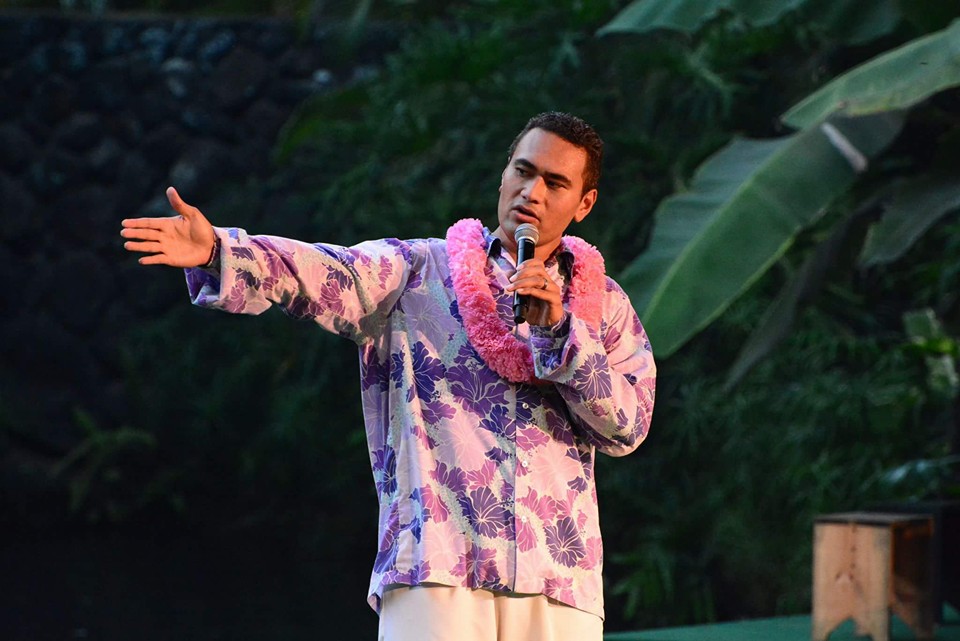
Tupua serves as the Master of Ceremonies at the Alii Luau at the Polynesian Cultural Center
“I love the fact that I get to make people happy and make them smile, and I love that I get to do it through what I love to do, as an actor, singer and dancer. I get to use all the gifts that God has given me to really brighten their day,” Ainuu said.
PCC guests obviously love him, too. “People are so kind,” he shares. “Many guests ask me if I have my own CD, or they ask if I’m going to do more gigs outside of PCC.” He added that some guests compare him to other famous entertainers in Hawaii, “for which I’m honored.”
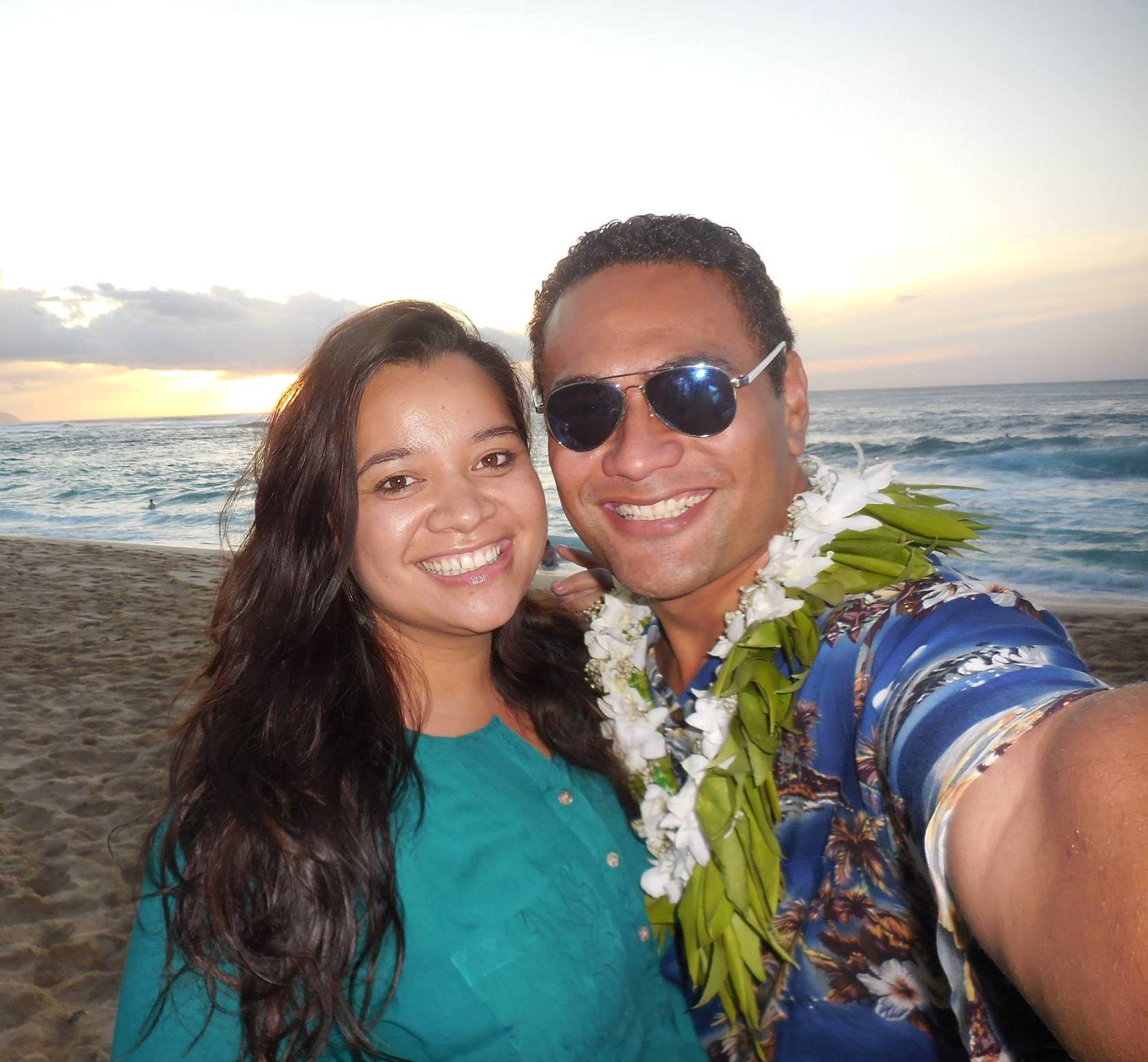 But while he and his wife ponder their near future — BTW, she’s a choral music instructor at BYU–Hawaii, and a very talented lady in her own right, Ainuu said he’s pleased to continue stepping up to the microphone at the PCC Alii Luau, the canoe pageant, or any other emceeing assignment he’s asked to do.
But while he and his wife ponder their near future — BTW, she’s a choral music instructor at BYU–Hawaii, and a very talented lady in her own right, Ainuu said he’s pleased to continue stepping up to the microphone at the PCC Alii Luau, the canoe pageant, or any other emceeing assignment he’s asked to do.
And in the meantime, he said he’ll also continue to go to auditions, “and I’m really excited about an upcoming production of Romeo and Juliet that’s going to be set in Samoa.”
“I really love doing our Alii Luau. It’s wonderful,” Tupua continued, “because it’s an opportunity for the guests to come here and not have just a delicious meal, but also learn more about our culture. I take advantage of the time to teach them about Laie’s history. For example, I explain that some of our dances talk about how ancient Laie — home of the PCC — was a pu’uhonua or place of refuge, for those seeking safety or healing. It was a sacred place.”
“I also tell them how at one time in the 19th century hula was banned for about 50 years, but during that period Laie was the only place where the Hawaiians actually continued to practice hula. Our Laie kumu [teachers] from back then are well-known among dancers today, and we still consider that hula heritage to be a part of our culture that has permeated throughout the world from this little community.”
Tupua added that two other Laie Hawaiians have left worldwide marks: Joseph Kekuku, who invented the Hawaiian steel guitar, and Hamana Kalili, who originated the Hawaiian “shaka”— the actual “hang-loose” hand gesture, but not the name of it. FYI, Laie kids started mimicking his distinctive hand-wave after he lost parts of three fingers in an industrial accident, and he himself shared his distinctive wave with thousands of tourists at the old Laie Hukilau program. Since then, tourists and surfers have spread the gesture around the globe. Statues honoring both of those Laie men are now part of the PCC’s Hukilau Marketplace.
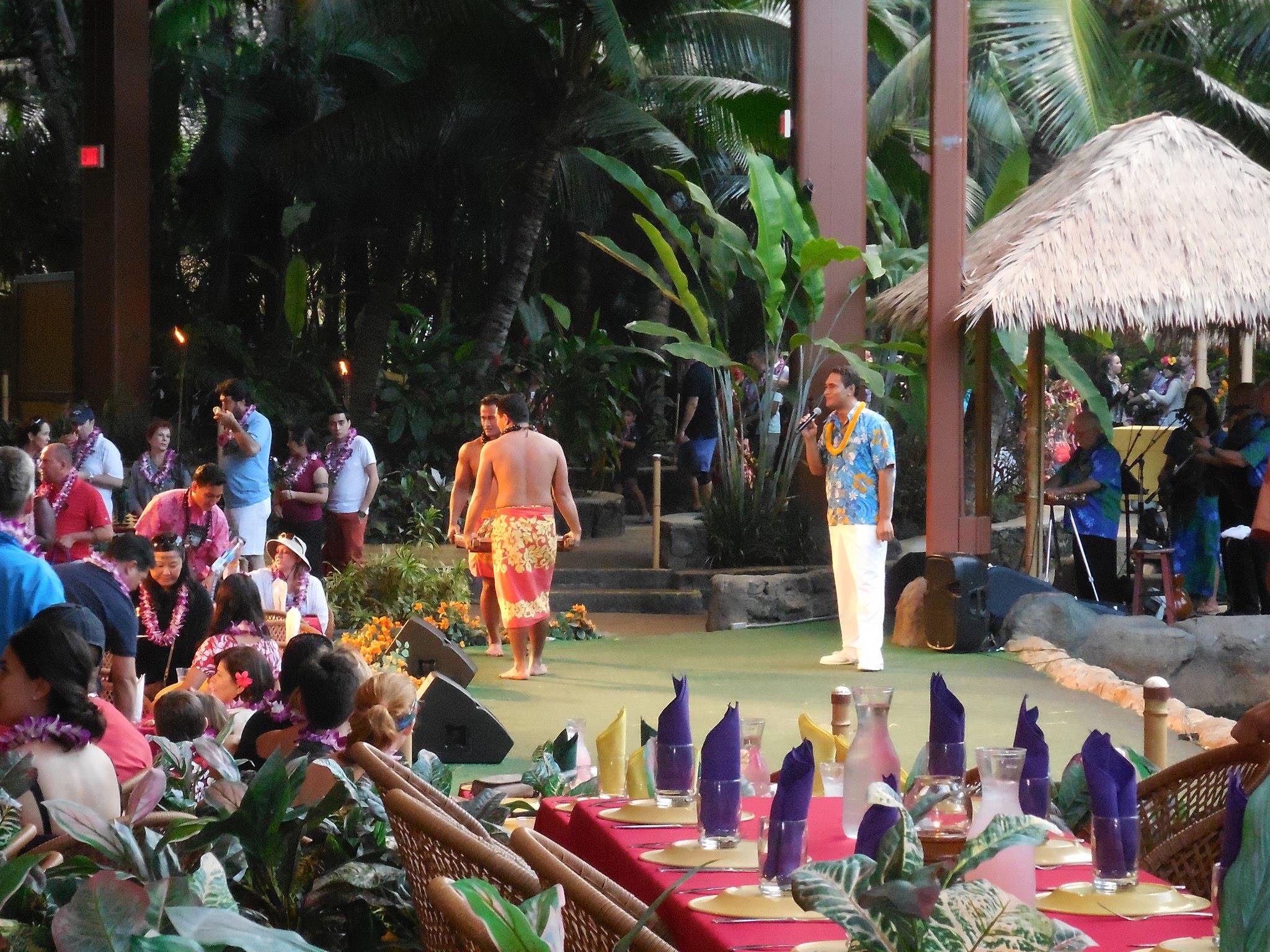
Presentation of the Imu smoked pig at the Ali’i Luau at the Polynesian Cultural Center
Of course, the PCC’s Alii Luau starts with an imu ceremony, where young men lift a large, whole-cooked pig from the traditional earth oven that had been cooking earlier throughout the day; and the Center also presents our Hawaiian ali’i — chiefs or royalty — at the beginning with appropriate protocol, “such as hula dances in their honor. That’s why we call it the Alii Luau, or royal feast,” Tupua said.
But he also points out that the Alii Luau entertainment includes a well-rounded representation of other Polynesians: “For example, we do a Samoan fire knife dance, and a Marquesan pig hunting number. The Marquesas are part of French Polynesia.”
“When I grew up in Las Vegas, most people thought all Polynesians were Hawaiians, so now I get to help explain how we also have Samoans, Tahitians, and Tongans, for example, and some of our differences,” he said.
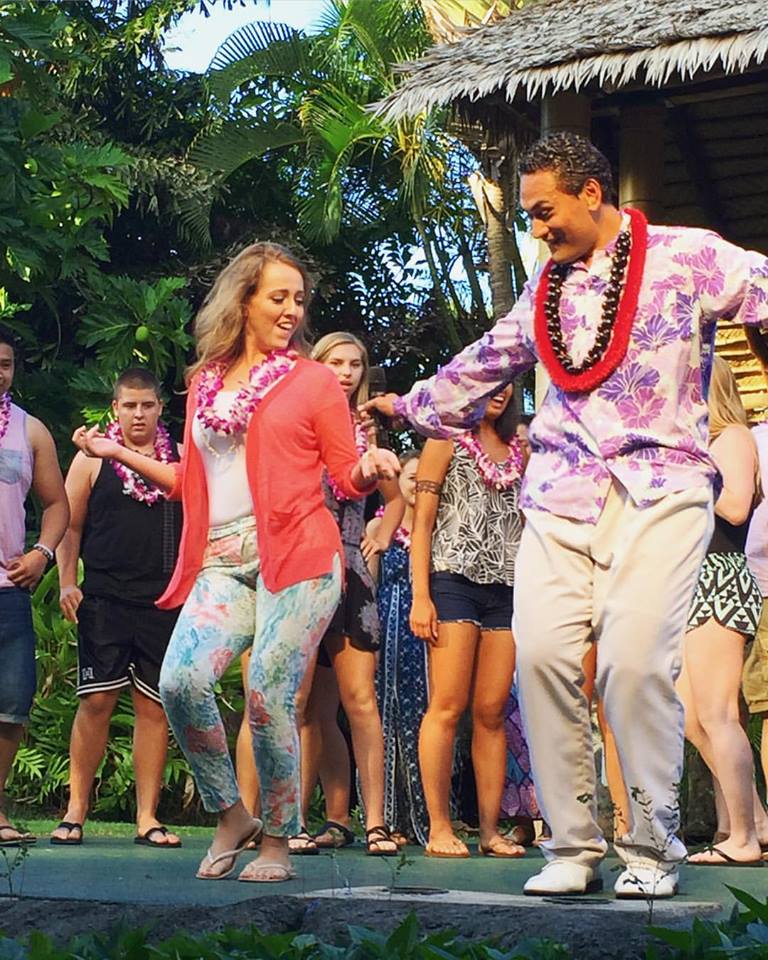
Tupua brings the guests onstage during the Alii Luau at the Polynesian Cultural Center
And we love to get the guests up on stage, too,” Tupua continued. “We bring some of them up to celebrate birthdays as well as those graduating from high school, college, and university. We celebrate love, with all the newly engaged, honeymoons and anniversaries; and we also celebrate our military veterans. I’m really proud of that,” Ainuu said. “I have a huge spirit of gratitude for our military during the luau.”
“Our Alii Luau is ranked number-one, partially because we offer family-friendly entertainment that’s about our authentic cultures. We don’t focus on bare skin or serve alcohol. And, of course, we offer an amazing variety of delicious food — all in one package.”
“I love my job,” Tupua said. “Actually, I don’t even consider it a job. It’s more like a never-ending gig where I get to perform my heart out, and the best thing about that is I get to represent my Polynesian culture.”
Story and images by Mike Foley
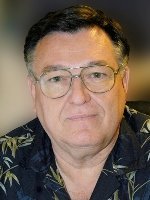
Mike Foley, who has worked off-and-on
at the Polynesian Cultural Center since
1968, has been a full-time freelance
writer and digital media specialist since
2002, and had a long career in marketing
communications and PR before that. He
learned to speak fluent Samoan as a
Mormon missionary before moving to Laie
in 1967 — still does, and he has traveled
extensively over the years throughout
Polynesia and other Pacific islands. Foley
is mostly retired now, but continues to
contribute to various PCC and other media.

Tupua is an amazing person, all rounder nice and talented guy.
Yes, a great showman. He recently moved back to the mainland to pursue his acting career. We miss him, but we are happy for him also. He is a talented performer and a wonderful friend to the PCC. Meanwhile, he has helped to train some fantastic MC’s, so our visitors will still be able to enjoy a great evening of entertainment at the Ali’i Luau.